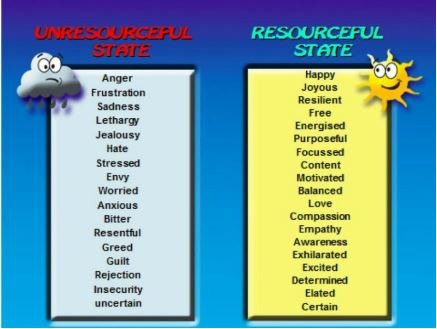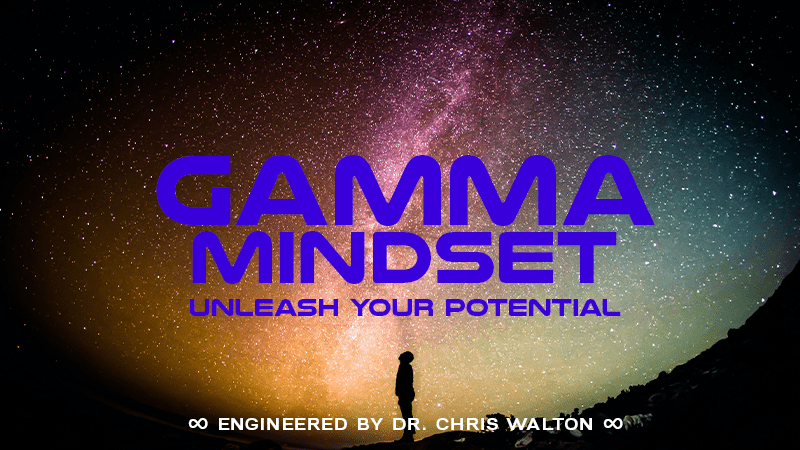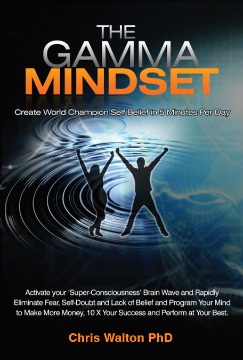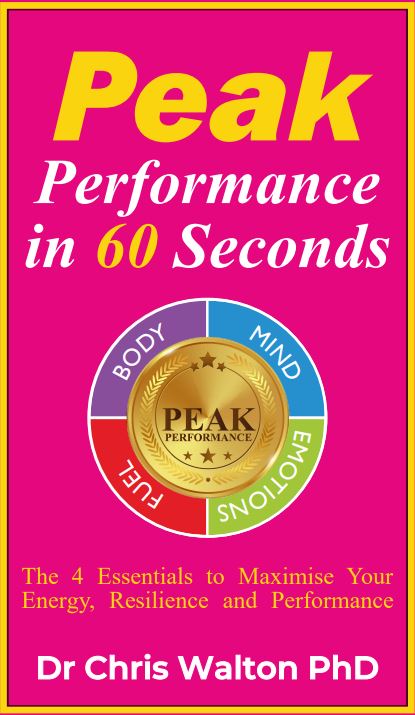When dealing with people, remember you are not dealing with creatures of logic but creatures of emotion.
Dale Carnegie
Emotion is “energy in motion”. The word itself is derived from the Latin verb meaning “to move”. Emotional energy adds power to your thoughts. Scientists used to think that emotions are produced only in the brain.
However, sophisticated instruments now show that emotions are the product of an on‐ going dialogue between the body and the brain.
Our emotional experience normally on a scale from very pleasant to very painful is really a combination of feeling sensations, associated mental thoughts and biochemical reactions. Every time we think a thought we instantly have an emotional feeling to match that thought.
It is these thoughts and feelings that create specific chemicals that are absorbed into our cells that give rise to how we feel. If we have self‐depreciating or stressful thoughts we instantly start to feel negative, unhappy or unworthy. If we have focused, confident thoughts we instantly start to feel optimistic, positive and so on.
Thoughts and feelings are intimately connected which is a blessing and a curse. When we start to think negatively we create the chemicals that make us feel negative. When feeling negative we start to think more negatively and we can get caught in a vicious cycle of think-feel-think-feel-think-feel all day long.
And most of this is done on ‘autopilot’ with little if any awareness. Now here’s the rub:
If we cannot think greater than we feel we can never change!
Our whole personality, our whole identity, our whole being becomes conditioned into certain parameters of success due to our mostly unconscious pre-programmed thoughts and feelings. This is why a high level of emotional awareness and management is essential to maximize your performance and success. Most people ride the same autopilot rollercoaster of thoughts and emotions day in and day out.
On average we experience almost 30 different emotional states each hour.

With about 16-17 waking hours each day that’s over 450 emotions every day and over 3000 emotional reactions each week!

As the majority of these emotional reactions are occurring whilst we are at work, it is quite obvious that people with high levels of emotional intelligence are easier to work with and higher performers.
THE EMOTIONS OF PEAK PERFORMANCE
Exercise:
1. What are the 3 key emotions that you feel when you are performing at your best?
2. Take a look at the diagram below and just consider how many of these emotions you experience on a regular basis.
3. How often do you feel the emotions in the left hand column? And how often do you consciously choose them or are they autopilot reactions?

Few of us will consciously choose to be in the left hand column.
We access these emotions unconsciously, reactively and instinctively.
In order to effectively utilize the amazing power of emotion we need to become very conscious of which emotions add quality to our lives and which ones do not.
The evidence is very clear; negative emotions keep your brain and body bathed in stress hormones.
This speeds up your ‘biological aging clock’, draining emotional buoyancy and physical vitality.
In fact, researchers have found that emotional stress is one of the strongest risk factors for heart disease and sudden cardiac arrest, as much as, or more so than smoking or a sedentary life style.
One hormone to pay close attention to is adrenaline.
Strong emotions, like anger or fear, release a lot of adrenaline into your body.
Adrenaline gives you a boost, like a cup of coffee, it can make you hyper aware for a short period of time. This can be useful in some situations, but too much adrenaline can lead to high blood pressure and burn- out.
I have coached many ‘stressed-out’ city clients who have thrived on the adrenaline buzz mistakenly thinking it is a high performance zone and ended up with long term fatigue.
Another hormone that gets released when we are feeling stressful emotions is cortisol.
Studies by Dr Bruce McEwen, the director of the neuroendocrinology lab at Rockefeller University in New York, found that the stress hormone cortisol wears down the brain, leading to atrophy and memory loss.
It also raises blood pressure and blood sugar, which contributes to hardening arteries, which in turn may lead to heart disease.
THE HEALTH EFFECTS OF STRESS
The effects of stress in people are seen physically, mentally and emotionally. According to the American Institute of Stress, up to 90% of all health problems are related to stress.
Too much stress can contribute to and agitate many health problems including heart disease, high blood pressure, stroke, depression and sleep disorders.
Three 10‐year studies concluded that emotional stress was more predictive of death from cancer and cardiovascular disease than smoking. People who were ineffectively managing stress had a 40% higher death rate than non‐stressed individuals!
- In a 2007 study, the number of workers who had sought medical advice for what they believed to be work related stress increased by 110,000 to an estimated 530,000.
- Even mild stress has been proven to lead to people being unable to work. The research carried out by the University of Bristol and the Karolinska Institute in Sweden revealed that mild stress increases the chance of someone being on disability payments for physical problems by 70 per cent and more than doubles the likelihood they will have a psychiatric condition.
-
Using The Gamma Mindset Technique© And EFT-x is The Best Way To Comprehensively Eliminate Psychological And Emotional Stress.


